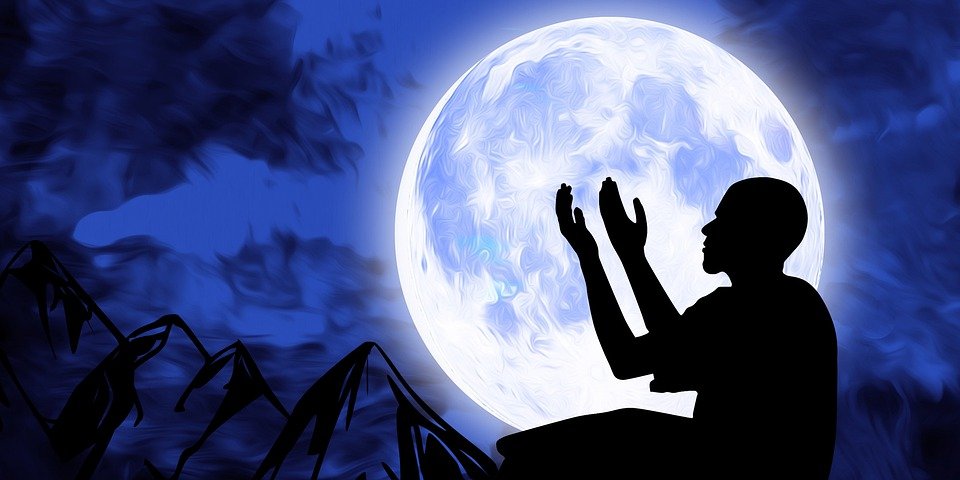The question above is, to say the least, a forbidden one. It is a question that never gets asked even by couples. We are often afraid to tell people how much money we have deposited with the various banks in the country. In fact we are often afraid to tell ourselves how much we worth. Nobody wishes to be reminded he is worth not more than six feet and six yards of white cloth. Nobody wishes to be reminded that what he keeps in the banks do not actually belong to him. What you keep in the banks belong to those who will inherit you after your death. Al-Rasul (s.a.w) tells us: “what you spend in the path of the Almighty is actually what you are worth.”
Brethren, only Allah knows exactly the time margin between the emergence of Prophet Musa and Prophet Muhammad (upon them be peace and blessings of Allah). Whereas Qarun lived during the time of Prophet Musa, men like Ubayy b. Kab. b. Salul lived during the time of Prophet Muhammad. Both men thought the life which was worth living was that which grants men and women material comforts. But both Prophets strove to dispel this jejune philosophy. For example, Prophet Muhammad emerged as a head of state, a family man, a judge, a peacemaker and a close confidant to Christians, Jews and Muslims in Madina. He was the leader of the executive arm of government, the Minister of finance and the works minister. He had access to the opportunities from which our politicians nowadays exploit to make millions and indeed, billions of naira. Yet he lived a life which was devoid of plum and plenitude. His personal room consisted of mats and mud floor; it was devoid of tiles, marbles and what they now call POP (whatever that means). Muhammad lived in Makkah and Madinah which had no air-conditioners, no well-paved lounges, terraces and boulevards. He worshipped his creator in a mosque in Madina which was bereft of golden pillars and rugs. Each time he went out to the markets in Madina, ordinary citizens of the Madinite State were always there to welcome him. Muhammad had no bullet-proof cars. Muhammad died without having a bank account!
Thus the day he died, the Prophet of Islam, Muhammad (upon him be the choicest blessings and benedictions of Allah) left only one thing as estate for his heirs, for us: Islam. He left behind no housing estate, no shares in multinational companies, no dividends from which his heirs could benefit.
Thus Dear Brethren, I woke up today to confront the question: how much do I worth? Permit me to ask you too: How much do you worth? This question is not actually targeted at an invasion of your privacy, at least in material terms. In fact I usually take flight from doing self assessment using currency as the denominator; I abhor the temptation to view life mainly through the prism of material provisions at my possession; I always pooh-pooh a reading of life which glories in the valorization of the temporal over the eternal. Rather, I desire to ask you my sister and brother what you think you worth in the estimation of your creator. To know your worth in the estimation of your creator is very simple. Examine the way you treat His injunctions. Reflect on the way you serve Him.
About a week ago, I was privileged to attend a birthday event by one of those upon whom the Almighty has showered His blessings. He happened to be one of the rich brothers in town. His homestead is located up there among the ornaments of the society, not down here, among the poor, the underprivileged. I entered the courtyard and I beheld wealth and comfort in its rarefied form: luxurious building, luscious garden, marble terraces, canopies which only the rich can buy and afford. Soon it was time for me to deliver the short admonition. Luckily, the Almighty ministered to my tongue: I asked him a simple question: “which of these signs and scenes of wealth and riches belongs to you?”. The celebrant looked me straight in the eyes and said with confidence: “none of these belongs to me; that which is mine are my acts of worship for which I expect recompense from Him, the Almighty”.
Brethren, this house is not yours; though people may refer to you as the landlord; this car does not belong to you though in the interim you may be referred to as the car owner. Your beautiful wife; your handsome boys; this big estate…none of this is yours in the long term. It does not make much sense that you should bargain that which is permanent for that which is ephemeral.

 Join Daily Trust WhatsApp Community For Quick Access To News and Happenings Around You.
Join Daily Trust WhatsApp Community For Quick Access To News and Happenings Around You.


